The jury awarded the 2011 Prix Prescrire to the 5 titles listed below. These works were chosen from amongst the 23 publications reviewed in La revue Prescrire between October 2010 and September 2011. All the books are in French.
Dis-moi, Docteur ! Les soins et les actes médicaux
expliqués aux enfants et à leurs parents
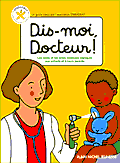 Association Sparadrap "Dis-moi, Docteur ! Les soins et les
Association Sparadrap "Dis-moi, Docteur ! Les soins et les
actes médicaux expliqués aux enfants et à leurs parents"
("Tell me, Doctor! Medical care explained to children and their parents") Éditions Albin Michel Jeunesse, Paris 2010:
168 pages, 14.50 euros.
For many years now, the French nonprofit group Sparadrap has been producing short documents designed to inform children who need medical care, and to help parents support their children by giving them good explanations. Many of these documents have been brought together in this book.
> More information (in French)
Grossesse et travail. Quels sont les risques pour l'enfant à naître ?
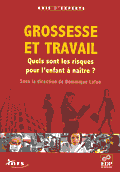 Institut national de recherche et de sécurité (INRS),
Institut national de recherche et de sécurité (INRS),
under the direction of Lafon D "Grossesse et travail.
Quels sont les risques pour l'enfant à naître ?" ("Pregnancy and work. What are the risks for the unborn child?")
Avis d’experts, EDP Sciences/INRS, 2010:
561 pages, 52 euros.
This meticulously documented book gives a detailed analysis of the data regarding the risks for the unborn child associated with work during pregnancy and examines existing regulations in France. A solid work, which delivers the information for those who need it, in order to avoid preventable accidents.
> More information (in French)
Le retour à domicile après un accident vasculaire cérébral -
Guide pour le patient et sa famille
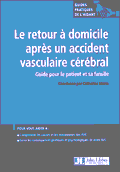 Morin C et al. "Le retour à domicile après un accident vasculaire cérébral - Guide pour le patient et sa famille" ("Coming home
Morin C et al. "Le retour à domicile après un accident vasculaire cérébral - Guide pour le patient et sa famille" ("Coming home
after a stroke - A guide for patients and their families")
John Libbey Eurotext, Montrouge 2009: 183 pages, 22 euros.
It is a tough job to try to come up with a guide to complement the information given by healthcare practitioners, in a context where patients and their families are confronted with particularly difficult situations. A job done successfully by this book, which delivers useful information, boiled down to the essential, reliable and up-to-date, delivered in an understandable and practical manner for patients who have had a stroke.
> More information (in French)
Mediator° 150 mg. Combien de morts ?
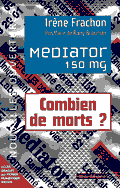 Frachon I "Mediator° 150mg. Combien de morts ?"
Frachon I "Mediator° 150mg. Combien de morts ?"
("Mediator° 150 mg. How many deaths?")
editions-dialogues.fr, Brest 2010:
148 pages, 15.90 euros.
This book was largely responsible for informing the French public about the Mediator° scandal and the dysfunction of the drug regulatory system that it revealed. For patients, healthcare professionals, health authorities and pharmaceutical companies, the awareness raised by this book has been such that, from now on, nothing will ever be the same. Even if the reforms being made to the system turn out to be insufficient.
> More information in English
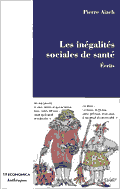 Les inégalités sociales de santé
Les inégalités sociales de santé
Aïach P "Les inégalités sociales de santé"
("Social inequalities and health" )
Économica, Paris 2010:
280 pages, 14.50 euros.
A sociologist's take on a subject that was late in being studied in France: social inequalities and their links to peoples' health. What are the hypotheses to explain the impact that these inequalities have on health? How can inequalities be reduced, by acting at an individual level, or at a societal level? A thought-provoking book that fosters better understanding.
> More information (in French)
©Prescrire 10 October 2011
"Prix Prescrire 2011" Rev Prescrire 2011; 31 (336): IV. (pdf, in French, free)
